Chris Estrada Is the Hardest Working Man in Comedy
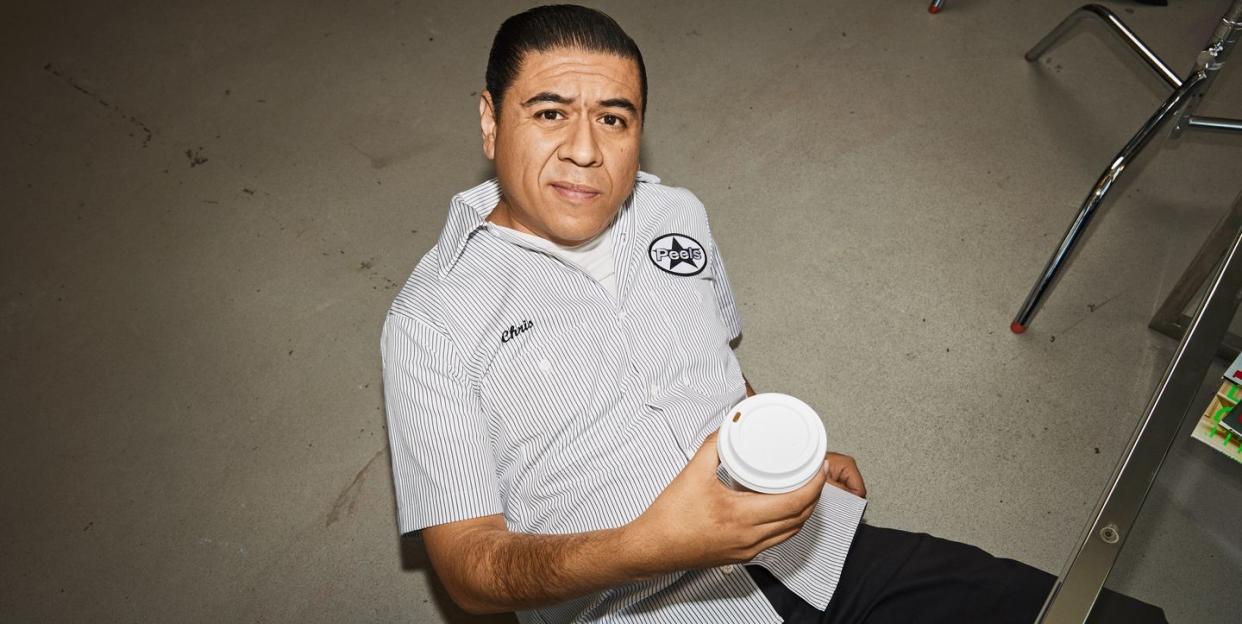
The day Chris Estrada’s life changed started like so many before it: up early, in the car, off to work in a warehouse. Day shifts loading trucks. Day shifts unloading boxes. Years of this. For a while, it was nights, too. Two or three jobs, for nearly two decades. It felt as if this was how the rest of his life would go. It wasn’t.
On the day Estrada’s life changed, in 2019, he’d been unpacking boxes of clothes all morning. At 12:30, on lunch break, he was in his car when a call came from comedian and producer Fred Armisen. He wanted to work with Estrada on a project that would become This Fool, the Hulu show based loosely on Estrada’s life and tightly on his love of Los Angeles.
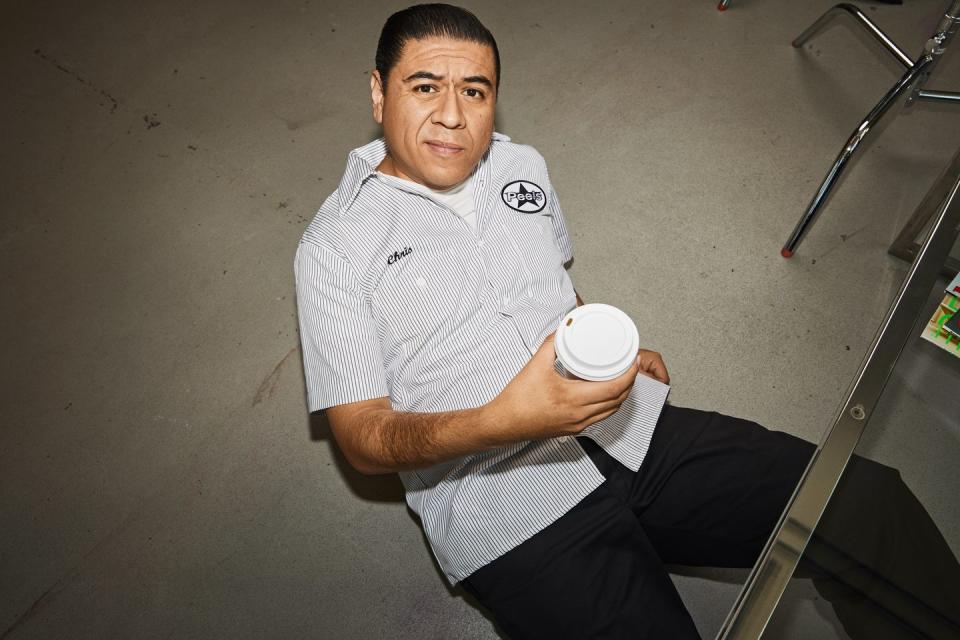
Shirt by Peels. Trousers by Dickies, available at Urban Outfitters. T-Shirt, Estrada’s own.Aaron Richter
The call was an “immediate ‘Okay, let’s start,’ ” Armisen says, “as opposed to ‘Hey, I need to get to know you.’ ” He didn’t need to. “I liked his haircut,” Armisen recalls with a laugh. “He greased it back in a way that I think only people who grew up with the Clash would know.”
That was it. A haircut, a feeling, a yes.
When the call was over, Estrada bought a sandwich from a truck and got back to unpacking boxes. He didn’t tell anyone. “Nobody had time to hear your fucking dream—we had work to do,” he tells me on the phone from his car. It’s the same car he drove then—a beater 2011 Scion xD—though his destination is different now.
This Fool is now in its second season on Hulu. It follows Julio Lopez, played by Estrada, as he tries to change his life. Living at home with his immigrant mother, working at a failing nonprofit that rehabilitates ex-cons, dealing with an on-again, off-again relationship with his girlfriend, Julio feels stuck. When his cousin Luis is released from prison and moves in, Julio’s life begins to finally—if not easily—change. This Fool could be a traditional odd-couple sitcom. Instead, it’s alive with the love and detail Estrada, now 39, has put into the characters—all complex and fully realized—and the sense of place that it embodies, drawn from his experiences growing up Mexican American in L.A. The show’s first season has a 100 percent score on Rotten Tomatoes.
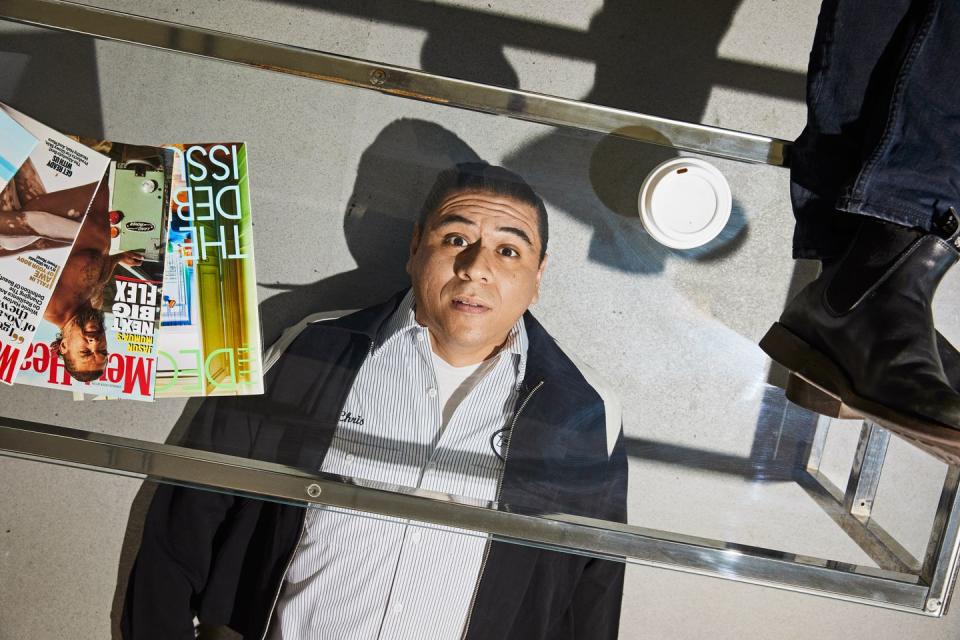
Jacket by Harley-Davidson. Shirt by Peels. T-Shirt, Estrada’s own.Aaron Richter
Season 2 is big and ambitious. The series already wore its affection for L.A. on its sleeve. Now it also figures into the soundtrack: Randy Newman’s “I Love L.A.” plays into a two-part hostage story. (Yes, hostage.) The second season is darker than the first, and funnier, too. Julio struggles to find meaning in his rudderless life. (“Life is meaningless and you don’t even know it,” he tells a rooster in the first episode. The rooster responds, “Sounds like you have clinical depression, my boy.”)
Everything that happens to Julio in season 2 has a connection—like all of This Fool—to Estrada’s own life. “I think a lot of the show mirrors my thoughts right now,” he says. “But it also mirrors a lot of the thoughts and themes that I dealt with in the past.”
When developing This Fool, Estrada didn’t think he’d play Julio. Early in the process, he raised the question of who should be cast as the character with his cocreators. They laughed. “It was like, ‘Chris, whether you like it or not, you’re going to star on a TV show loosely based on your life,’ ” cocreator Matt Ingebretson remembers. “I don’t know anybody else like Chris. It had to be him from the get-go.”

For Estrada, season 2 is a high point in a career that barely even existed before the pandemic hit. (He sold the show not long before Hollywood closed up shop alongside the rest of the world.) After Estrada filmed a scene driving up Florence Avenue in South Central for the new season, a crew member asked him how it felt to drive through the neighborhood where he grew up. “I just felt such anxiety,” Estrada says. There had to be “some motherfucker who’s cussing us out” because they’re late for work and “these fucking idiots I don’t know are shooting a damn show.” Sometimes you can know a place too well.
When South Central L. A. appears in popular culture, it’s usually depicted as a tough Black neighborhood. (Think Boyz N the Hood.) Estrada wanted to show South Central as he experienced it in childhood: multiracial and working-class. It plays a costarring role on This Fool.
Estrada’s mom and grandmother raised him in Inglewood and South Central, and from there he began to explore the rest of L.A. His mother worked late as a janitor, so he would spend the afternoons on the bus, learning how the city changed from one neighborhood to the next, witnessing its rhythms and complexities. But it was his discovery of punk through a friend that altered the trajectory of Estrada’s life. He was a teenager. The music offered him an outlet for his anger, depression, and anxiety—issues he still faces—without making him feel alone. “I remember looking at that Minor Threat cover with Alec MacKaye sitting down with his head on his arms and being like, That looks how I feel.”
Want more stories like this? Become an Esquire subscriber today.
subscribe
He had a less-than-illustrious high school career, graduating in 2001. Estrada then failed out of community college three times and spent his 20s doing shit jobs and being upset at himself for never really trying. He wanted more: to do comedy, to write. He told himself he couldn’t.
It took more than a decade before a one-two punch of losing his girlfriend and a night job parking cars pushed him past inaction. “I just was at my wit’s end, thinking, What am I gonna do?” The answer came, as many answers came for Estrada, from punk. Watching We Jam Econo, a documentary about the influential SoCal band the Minutemen, he realized he’d let the music become a soundtrack to his life—a soundtrack of disaffection and anger—instead of absorbing the do-it-yourself messages. With his nights now free, the messages finally hit him. “I remember thinking about how [the Minutemen] would get in that Econoline van and go out every night and perform,” he says. After years of telling himself he couldn’t do it, he did it.
In October 2013, Estrada walked into an open mic at Maverick’s Flat, a historic bar on Crenshaw Boulevard near where he lived. He did a stand-up set. He says he did okay. And he kept doing it. He jammed econo, driving around L.A. performing at open mics across the city. Established clubs, alternative clubs, even tiny house shows—anywhere with a mic that would have him. At 30, he was a decade older than most of the other comics starting out, so he had to make up time. He worked in warehouses all day and performed nearly every night. He got funny—fast. His years of self-loathing turned into a self-deprecating style that invites the audience to laugh with him instead of at him.
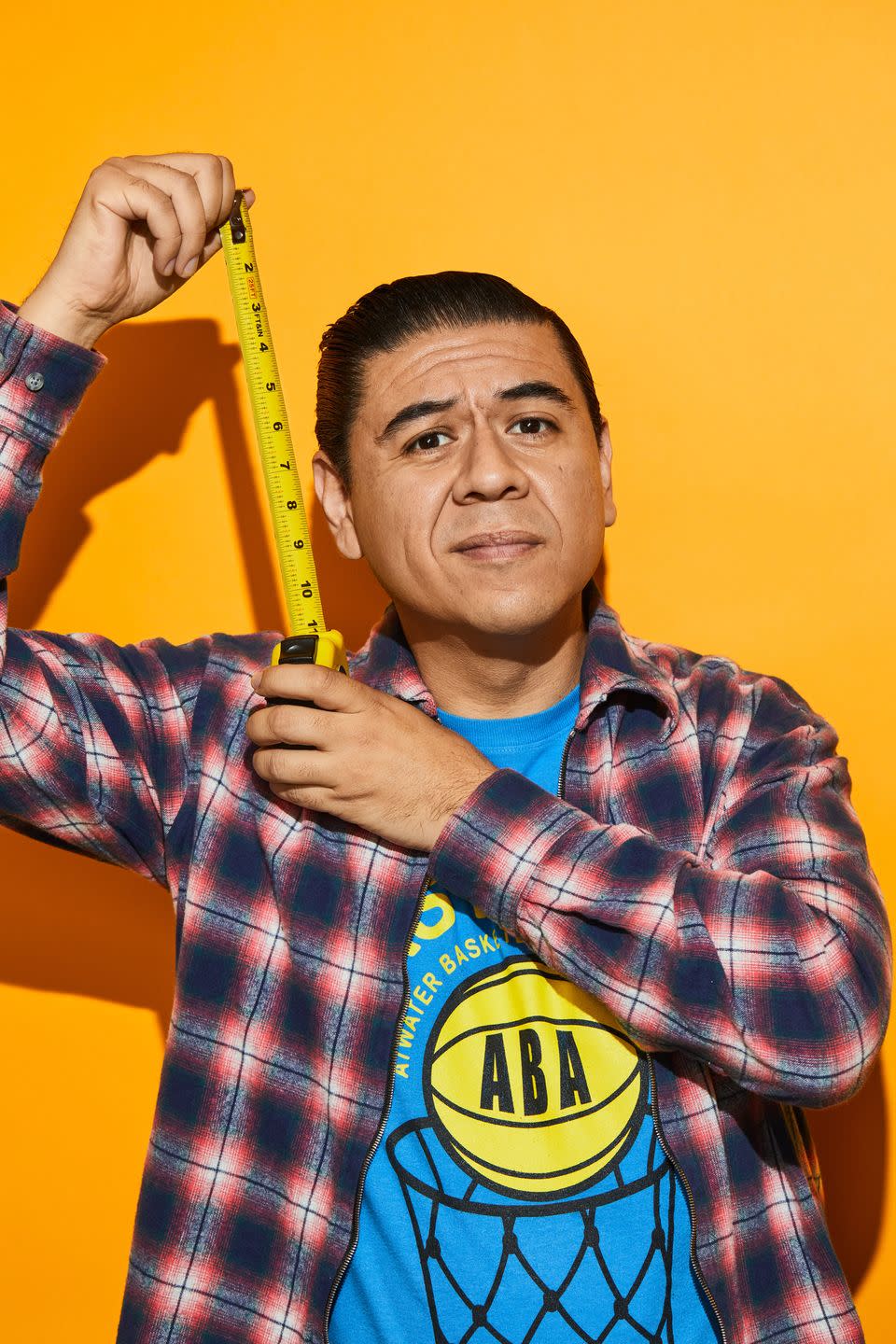
Shirt by Willie Norris for Outlier. T-Shirt, Estrada’s own. Aaron Richter
Ingebretson recalls sharing a bill with Estrada at a house show in L.A. “I literally watched a guy fall off his chair laughing at Chris,” he says. Ingebretson never forgot that set, and in 2018, after creating the show Corporate for Comedy Central, he and writing partners Pat Bishop and Jake Weisman approached Estrada about making something together. (They also reached out to Armisen about becoming an executive producer.)
It took a year of tossing around ideas, but by May 2019 they had a pitch ready. Estrada went to work at the warehouse, took his lunch break—you know that part.
What you don’t know is that the day after the call was really no different. Estrada went back to the warehouse, unloaded more boxes. The day after that, too. For months, even with Armisen on board, Estrada worked. Nobody was paying him yet, and he had nothing else to fall back on. He finally quit when they sold the show later that summer.
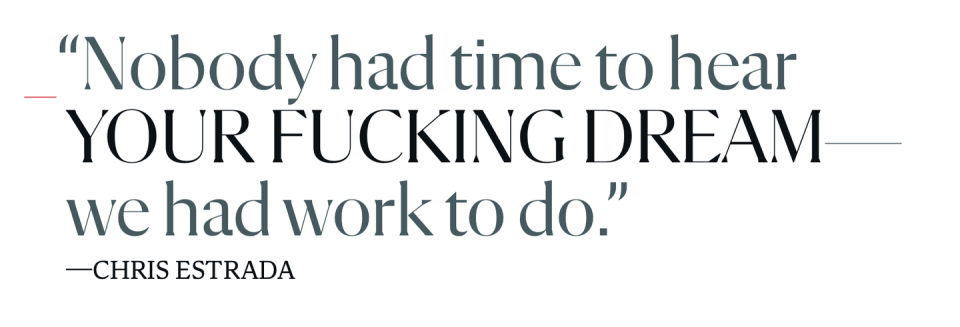
Estrada had never worked in TV. He’d never even acted. (Hulu got him an acting coach for This Fool.) The night before they started filming the pilot, in March 2021 (the pandemic delayed the pilot shoot), he “was shitting bricks.”
The first day of shooting was in MacArthur Park. Trailers lined a street on one side. His immediate reaction was worry. “I thought, Holy shit, we’re gonna get in trouble. The cops are gonna come and give us tickets; they’re gonna shut us down.” But Estrada wasn’t jamming econo this time. Permits had been filed; cops worked security. It was legit. That would take some getting used to.
The same work ethic that drove him to juggle two or three shit jobs at a time in his 20s, that had him traveling across L.A. doing comedy for most of his 30s, kicked in when he was making the show. He wrote, he acted, he helped with every little detail.
Today, Estrada exists between his old life—which he revisits every time he sits down to write—and this new one. “Financially, if I’m being honest, my life has changed,” he says—though he’s quick to admit that even that’s still new to him. “My buddy told me I should buy bitcoin,” he says, “and I go, ‘Dude, I barely understand real money.’ ”
When he’s not making the show, he’s out on the road, headlining comedy clubs throughout L.A. and around the country. He’s been so busy that he hasn’t really stopped to consider how much has changed.
But life doesn’t change in an instant. It changes in steps, some so small you don’t even notice and some so big you can’t miss them until, suddenly, you’re somewhere new.
As Estrada knows, life changes when you actually start living.
The interviews for this story were conducted before the SAG-AFTRA strike.
CHRIS ESTRADA'S CLASSIC DAY IN L.A.
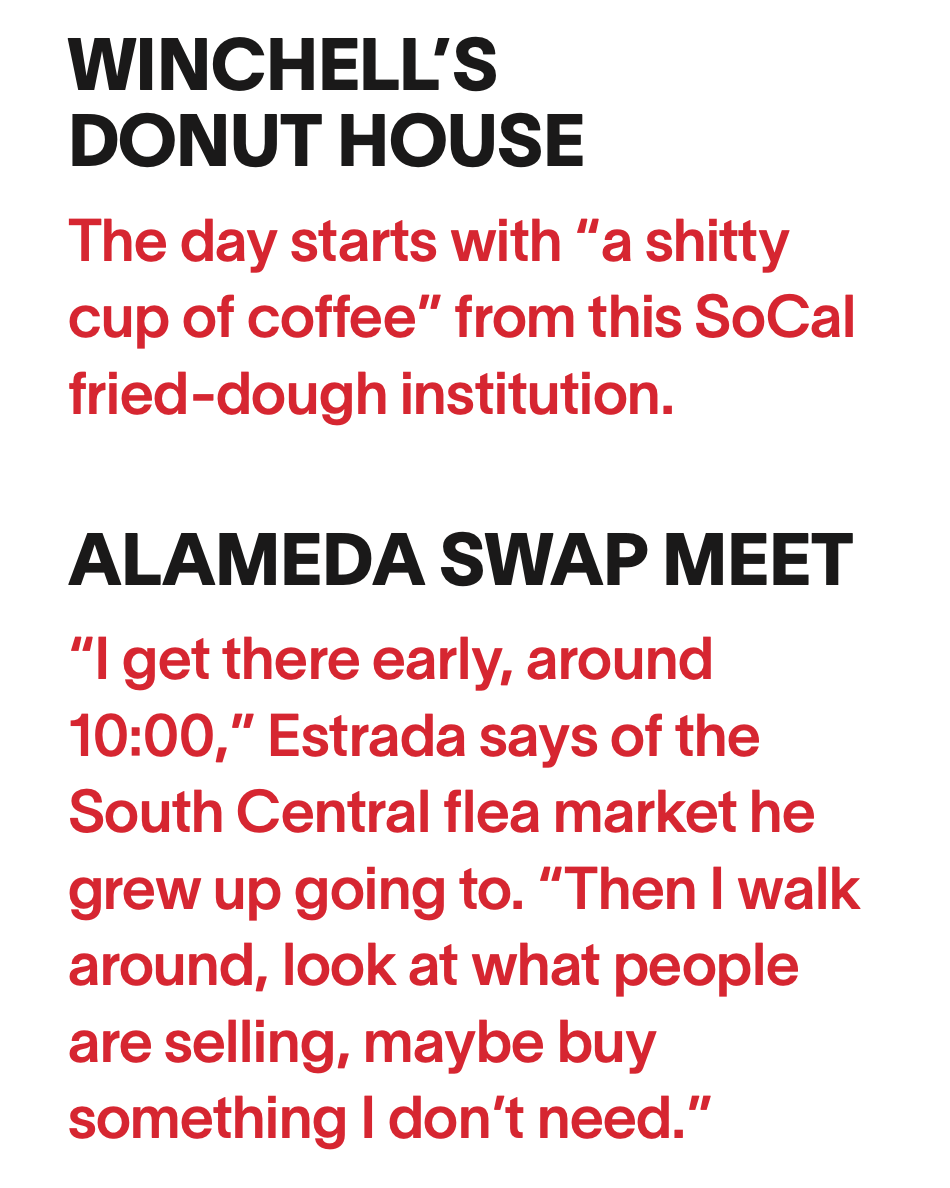
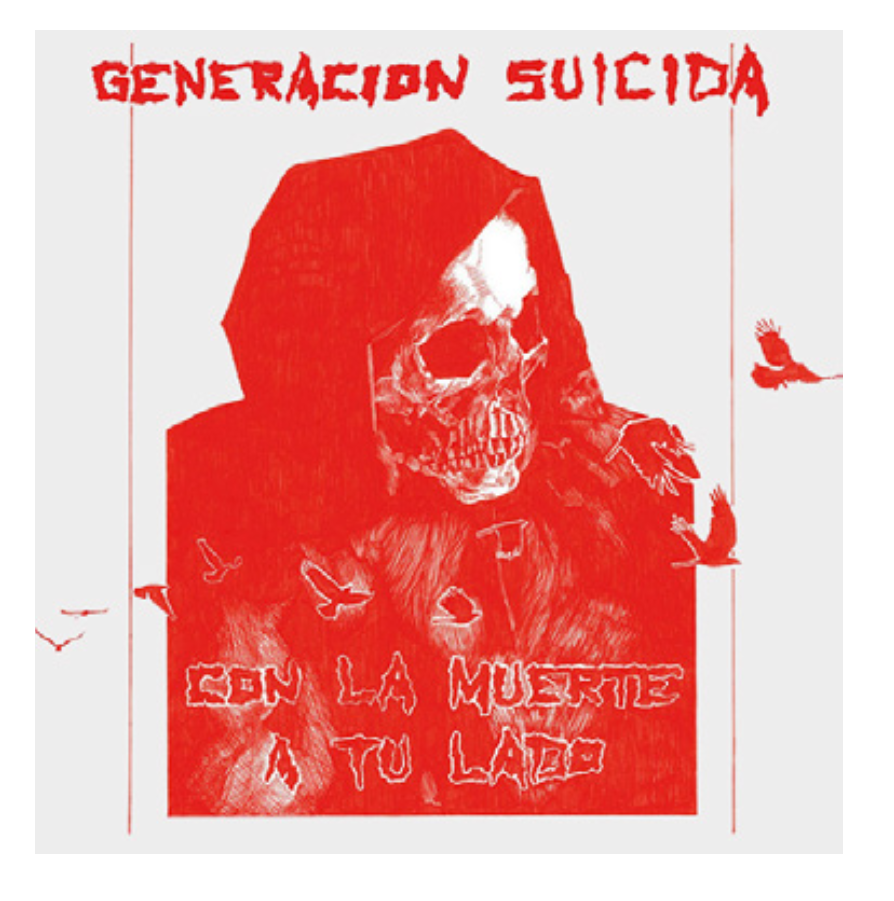
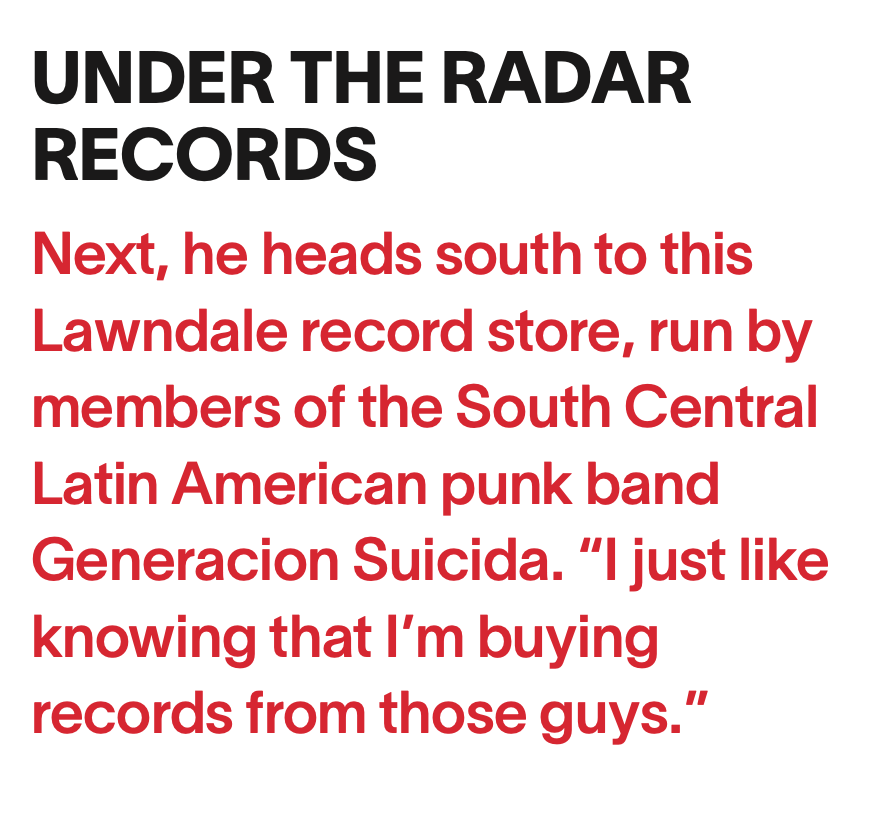
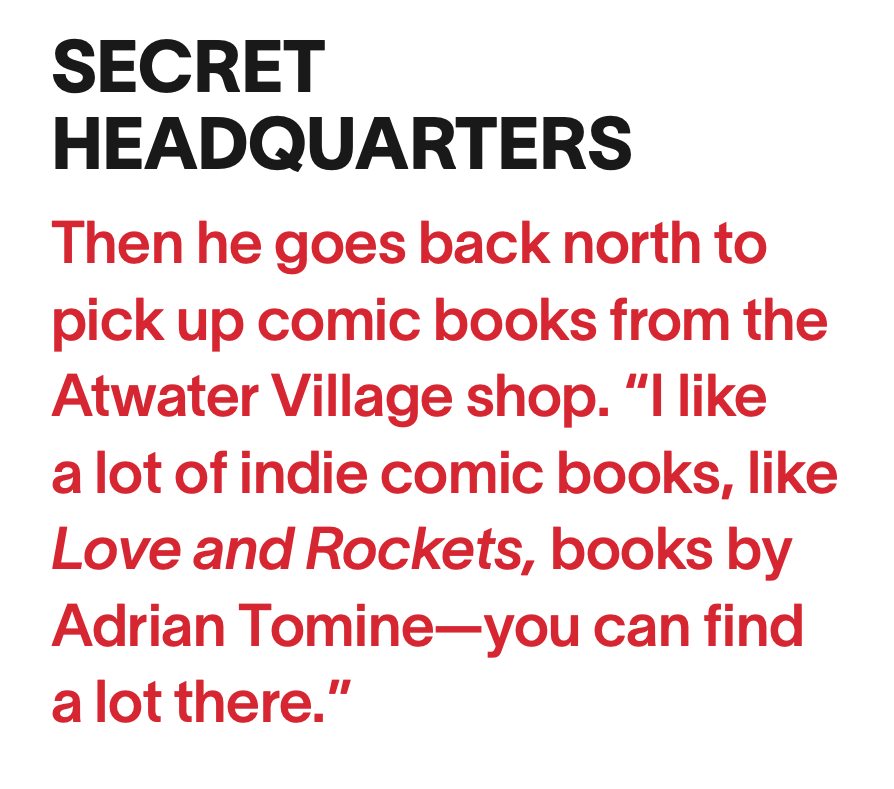
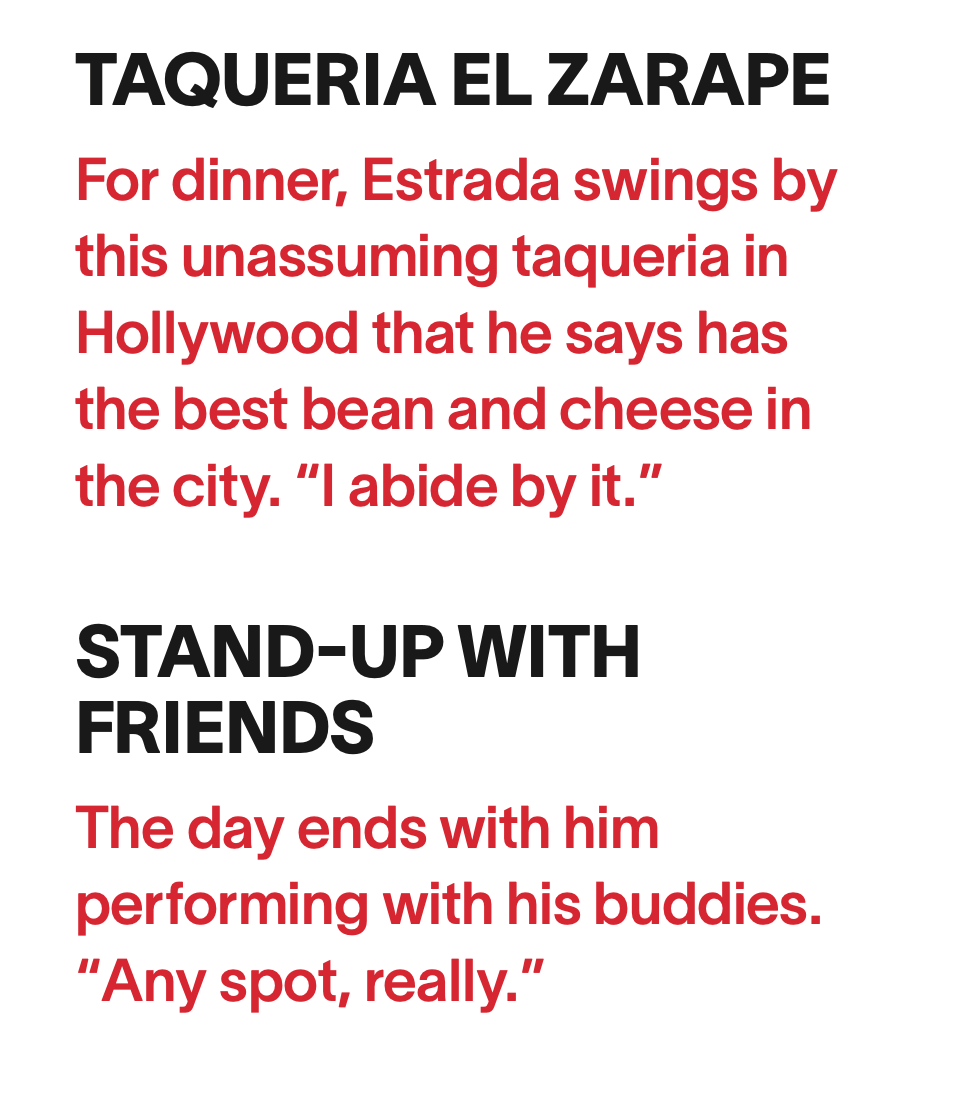
You Might Also Like

